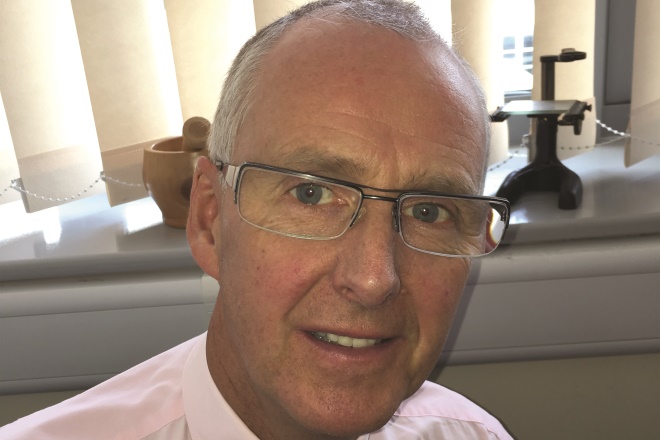
Shutterstock.com

Courtesy of University of Keele
Nigel Ratcliffe, chair of the Pharmacy Schools Council and head of the pharmacy school at Keele University, would like to see a model of care where the first question a patient is asked before going to see their GP is ‘Have you consulted your pharmacist first?’
UK pharmacy schools want to raise the profile of the pharmacist with the public and commissioners highlighting the contribution the profession can make to cost-effective healthcare.
They also want to promote the message that pharmacists are experts in medicines and educated to master’s level, according to priorities spelt out in the ‘Pharmacy schools council strategic plan 2017–2021’, published on 14 November.
The report says: “The council wishes to be public-facing, to ensure that there is dissemination and recognition of the education the pharmacist receives and the knowledge that pharmacists have.
“The contribution of pharmacists and their education to the safe and effective healthcare delivery agenda should be better articulated and evidenced.”
The schools want to ensure that pharmacists “are recognised in workforce planning for their contributions and skills and their positive and cost-effective impact on healthcare delivery and the economics surrounding medicines.”
Nigel Ratcliffe, chair of the Pharmacy Schools Council and head of the pharmacy school at Keele University, said: “I’d like to see a [future] model where the first question a patient is asked before going to see their GP is ‘Have you consulted your pharmacist first?’”
Ratcliffe hopes the strategy will trigger a wide debate about pharmacist education and training and show that the schools are responding to the professional changes.
The strategy acknowledges that the environment in which the pharmacist works is “rapidly changing” and that schools are responding — creating professionals equipped with the core characteristics and skills required to win the “trust and recognition of the public.”
The schools say that every pharmacist should graduate with “communication skills, resilience, team skills, empathy, integrity and clinical interaction.”
They need to be able to play a key clinical role with patients, lead the development and use of new evidence-based medicines and be the “pharmaceutical and medicines scientist within the multidisciplinary clinical team.”
A pharmacist will be expected in future to have a greater role in public health and primary care — reducing the need for GP referral and hospital readmission — as well as be the medicines expert advising other clinicians when medicines fail and new therapies become available, according to the strategy.
A future pharmacist will have a leading prescribing responsibility and also be recognised widely across the public and private sector and industry as “a patient-focused leader of pharmaceutical research, drug development and the introduction of new medicines to the patient.”
Ratcliffe added: “We want to make sure that chief pharmacists and those that regulate us and other stake holders understand that we are responding to these challenges and [to understand] the enormous changes which have been made to undergraduate education.”
He said it was also important in the current climate that the public and others understand the high level to which pharmacists are educated and recognise their current contribution, and future potential, in delivering cost-effective services.


